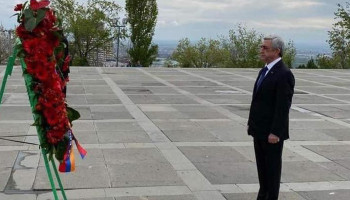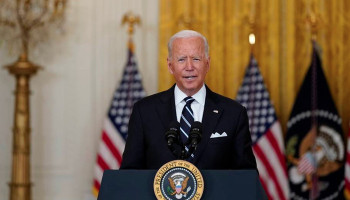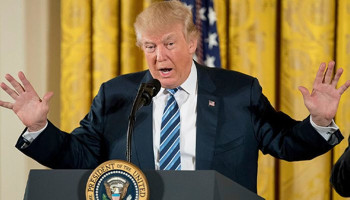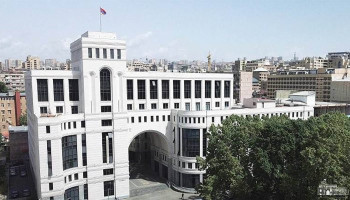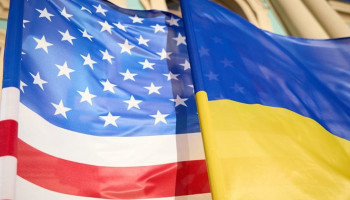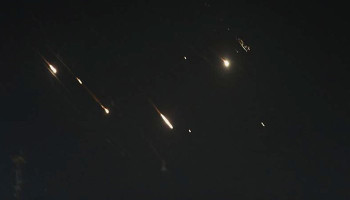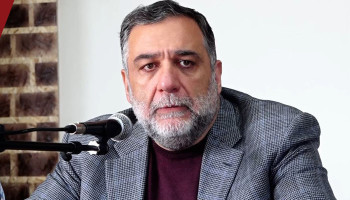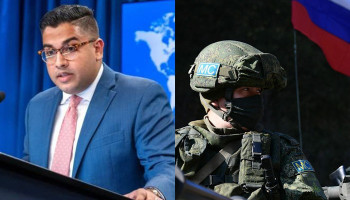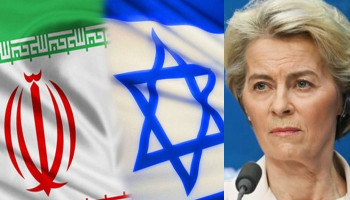UN General Assembly approved a resolution on the Crimea, calling Russia “the occupying power”
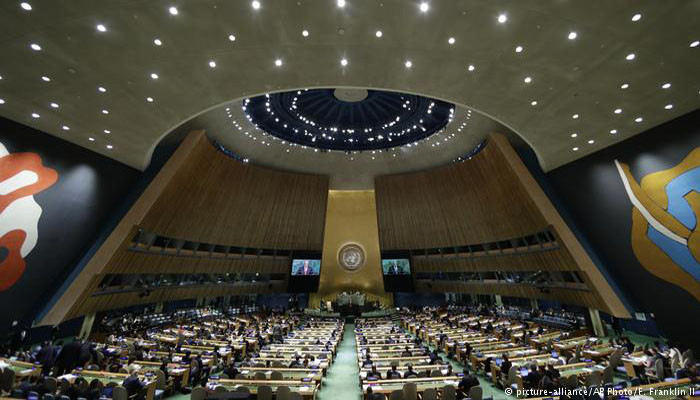 The UN General Assembly on Tuesday passed a resolution with a majority of votes condemning allegedly having in Crimea a violation of human rights and allegedly “illegal establishment of laws, jurisdiction and management by the Russian Federation” on the peninsula. For the text proposed by Ukraine in co-authorship with 30 countries, 70 states voted, including the European Union and the United States. Against 26 countries, including Russia, Armenia, Belarus, Bolivia, Venezuela, India, Kazakhstan, China, the DPRK, Cuba, Serbia, Tajikistan, Uzbekistan and South Africa. Another 76 states, mainly African and Latin American countries, abstained. In the adopted resolution, the General Assembly condemned “the temporary occupation by the Russian Federation of part of the territory of Ukraine – the Autonomous Republic of Crimea and the city of Sevastopol,” and also declared “its non-recognition of its annexation.” In addition, the GA noted Kiev’s efforts aimed at “putting an end to the Russian occupation of the Crimea.” Before the vote, Deputy Permanent Representative of the Russian Federation to the United Nations, Yevgeny Zagainov, said that the draft resolution on the Crimea “is a good example of abuse of human rights.” “It is obvious that the Ukrainian delegation and its patrons are not thinking about the rights of the inhabitants of this Russian region, but about how, contrary to their clearly expressed will, to challenge the status of the Crimea under the guise of human rights rhetoric,” the diplomat said. According to him, this is evidenced by “surrealistic attempts to present the situation on the peninsula as an armed conflict”. Zagainov warned that the countries that supported the resolution “encourage these very dangerous fantasies, creating the ground for provocations and adventures of Kiev and thus sharing responsibility for them.” – Revised Resolution – The resolution on the Crimea is being considered by the General Assembly for the second year in a row. In December 2016, 70 States voted for it, while another 26 voted against and 77 abstained. This year, the document was substantially revised and acquired an even greater anti-Russian color. It calls on Russia “to take all necessary measures to immediately put an end to all violations and infringements of human rights against the inhabitants of the Crimea”, including “arbitrary detention, torture and other cruel, inhuman or degrading treatment”; as well as “repeal all discriminatory legislation”. In addition, the Russian Federation is asked to “respect the laws in force in Ukraine and abolish the laws introduced in the Crimea” from March 2014, when the peninsula became Russian. Among other requirements put forward to Russia, the provision of “accessibility of education in the Ukrainian and Crimean Tatar languages”, the annulment of the decision to recognize the Mejlis of the Crimean Tatar people as an extremist organization, the abolition of military duty for the inhabitants of the Crimea, access to the peninsula of international observers. In addition, Moscow is urged to “fully and immediately” comply with the ruling of the International Court of Justice on April 19, 2017. It satisfied some of the demands of the Ukrainian side, including those concerning the Crimean Tatars, but Kiev’s statements about alleged “aggression”, “occupation” or the status of the peninsula are not supported. Presenting the draft resolution, Deputy Foreign Minister of Ukraine Sergey Kislitsa stated that over the past year the situation with human rights in the Crimea “has not changed for the better.” “It does not just remain serious, it has deteriorated extremely badly,” the diplomat said. According to him, Russia “continues to flagrantly violate its obligations as an occupying power, and there are no signs that it will adhere to the resolution of the UN General Assembly. Kislitsa quoted excerpts from the September report of the Office of the United Nations High Commissioner for Human Rights (OHCHR), according to which “the Russian Federation continues to implement its legislation in the Crimea in violation of international humanitarian law, which extends to the occupying Power.” He especially dwelt on the alleged harassment of Crimean Tatars, as well as restrictions on freedom of speech and religion. At the same time, he said that the authorities in Kiev “are committed to providing all possible protection of the fundamental freedoms and rights of Ukrainian citizens in the temporarily occupied territory of the Crimea.” – Attempt to switch attention – As the deputy deputy chairman of the Russian Federation, the Ukrainian delegation, “drawing a false picture of the situation in the Russian Crimea,” is trying to “shift attention from numerous systematic violations of human rights at home.” He drew attention to reports of “torture, enforced disappearances, arbitrary detentions, discrimination, political persecution, violation of freedom of expression”, as well as impunity for the burning of dozens of residents of Odessa in May 2014. As noted by Zagainov, these assessments are confirmed in the reports of the UN mission deployed in Ukraine to monitor the human rights situation. According to him, “candidly hypocritical” looks in the resolution approval of Kiev’s actions in relation to the Crimea, especially in the context of the blockade of the peninsula. He called the “cynical mockery” the demand of Ukraine to provide education in the Crimea in the languages of national minorities. According to Zagainov, schools and classes with Crimean Tatar and Ukrainian languages of instruction continue to function on the peninsula. “At the same time in Ukraine a scandalous law was adopted in September that deprives hundreds of thousands of children of the opportunity to receive education in their native language.” Examples of double standards and frank disinformation that abound in the project could be listed further, “the diplomat stated. He stressed that the adoption of the resolution sends “a false signal to Kiev that, under the guise of his anti-Russian propaganda, he can continue the policy of discrimination and human rights violations.” – Reunification on the basis of the results of the referendum – After the coup in Kiev in February 2014, the authorities of the Crimea and Sevastopol decided to hold a referendum on the issue of reunification with Russia – in the voting that took place on March 16 of the same year more than 80% of eligible voters took part. For reunification with Russia voted 96.7% and 95.6% of the inhabitants of Crimea and Sevastopol, respectively. On March 18, the Russian president signed an agreement on the admission of the Republic of Crimea and Sevastopol to the Russian Federation, and on March 21 the document was ratified by the Federal Assembly. Kiev refused to recognize Crimea as part of Russia.
|











